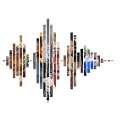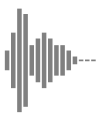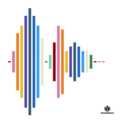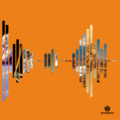Wikimedia Foundation/Communications/Sound Logo/Resources/he
| Wikimedia Foundation staff and contractors participate with the volunteer community in maintaining this page's content. |
Well played Wikimedia. 2065 votes for the Sound of all Human Knowledge. Thanks to your participation, we have a sound logo. |
Share with friends and fellow Wikimedians
- #WikiSoundLogo
Channels
- קרן ויקימדיה
- טוויטר: @Wikimedia
- פייסבוק: @WikimediaFoundation
- אינסטגרם: @WikimediaFoundation
- LinkedIn: @Wikimedia-Foundation
- ויקיפדיה
Posts
Promotional resources
Campaign name and concept
Wikimedia is the global movement working towards a repository of the sum of all human knowledge. So, in search of our sound logo – we’re looking for the sound of all human knowledge.
Writing your own headlines
The campaign title is designed to be modular. Meaning, “all human knowledge” can be replaced by any topic or world event, to demonstrate that the sound we’re creating truly needs to represent all of human knowledge. Examples:
"The sound of" Articles and categories
- The Sound of Modern Art.
- The Sound of the Rainforest.
- The Sound of Skateboarding in China.
- The Sound of Current Events.
"The sound of" learning experiences
- The Sound of discovering a good conversation starter.
- The Sound of finding out how two things that seem unrelated are actually connected.
- The Sound of unexpected personal facts.
The campaign call to action
We are using a fun and inspiring call to action throughout the whole campaign: Play your part. The call to action, like the campaign line, is modular and can be modified to match the different phases of the campaign. See below for examples:
- Play your part. Submit your sound.
- Play your part. Vote for a sound.
- Play your part. Share the sound logo.
The campaign lockup
What is?
A campaign lockup exists to land the campaign line and concept in a single key visual asset. It is not a logo, but an introduction for an audience to the intention behind a campaign.
To create excitement and intrigue around the search for “The Sound of all Human Knowledge”, we created a unique campaign lockup that is used across all assets. We have also translated it into eight other languages, download any of the lockups for you to use below.
-
عربى
-
deutsch
-
español
-
français
-
हिन्दी
-
Bahasa Indonesia
-
한국어
-
português
Please note: the sound logo campaign lockup can only be used on grey or white backgrounds.
The Campaign Look & Feel
The sound logo campaign uses the Wikimedia brand guidelines as a base for the look & feel. The art direction for this campaign is vibrant, clean, dynamic and allows for a lot of play. By establishing a campaign look & feel, we make it possible for all the executions in the campaign to work together while also becoming identifiable on their own.
The look & feel of this campaign also brings the executions closer to the movement through the use of our colour palette, fonts, and the Wikimedia logo throughout.
The key design assets include
- “The Sound of All Human Knowledge” campaign title lockup
- Typefaces used
- Colour palette
- A graphic “sound wave”, sometimes using photography depicting all aspects of human knowledge: art and culture, science and nature, history and current affairs.
- Wikimedia logo
By following the design recommendations below, you can make the designs both personal to you and recognisable as part of the Wikimedia Sound Logo Contest.
The Typefaces we use
The primary typeface for this campaign is Montserrat. It is used in the Wikimedia Foundation logo, and for all the branded content we make. Montserrat is a versatile sans-serif typeface. It has certain humanist features, giving it character and warmth, while its large X-height and wide construction give it a lot of impact. It works well for big headlines as well as smaller paragraphs of body copy. It is used in the “The Sound of All Human Knowledge” lockup, and across the campaign look & feel. Download the font
The secondary typeface used in this campaign is Lato, an open source unicode font. Download it.
The Colour Palette
The campaign uses our Creative palette. The Creative palette consists of 11 colours derived from those frequently used by community groups around the world, as well as the much loved Wikipedia20 birthday colours. It's also a palette developed to complement the Legacy and Core palette, providing greater versatility in situations where many colours are needed. The Creative palette includes both strong colours and lighter shades. The lighter shades can be useful when there is a need for a more subtle expression.
You can adjust the colours to fit your design needs using the colour palette below.
#E679A6
R230, G121, B166
C5, M66, Y7, K0
#71D1B3
R113, G209, B179
C46, M0, Y14, K18
#EE8019
R238, G128, B25
C3, M60, Y100, K0
#F0BC00
R240, G188, B0
C6, M25, Y100, K0
#049DFF
R4, G157, B255
C69, M31, Y0, K0
The Soundwave
In the same way that "The Sound of All Human Knowledge" line is modular. We have created an audio-emulating visual device made of sound bars that is fluid too just like a sound wave that keeps changing according to the sound. The audio device can be customised with imagery according to the 4 themes (Nature; Society and culture; Science; Engineering). The vertical height of the individual bars can also be adjusted, allowing you to create your very own. There are 2 different versions of the audio graphic device; 1. Photographic Audio Device; 2. Colour Audio Device.
How to use the soundwave device
The audio graphic device is made of sound bars that are fluid just like a sound wave that keeps changing according to the sound. There are 2 different versions of the device:
Photographic Audio Device
The photographic audio device is made up of imagery from Wikimedia Commons based on the following 4 themes (Nature, Society, Culture; Science and Innovation).
-
Science and Innovation
-
Culture
-
Society
-
Nature
You can use any of the above soundwaves in your materials. Alternatively, you can build your own.
Step 1: Choose your images
You can find images anywhere on Commons. You can see some of the images we have used.
Step 2: Adjust your own Audio Graphic Device
When replacing images it is important to note that images use a 3 bar rule: This means that images must stretch across 3 of the sound bars. You can adjust the length of each vertical soundbar to create your very own customised Audio Graphic device. To create a sound wave using your chosen images, make a clipping mask using the holding shapes below.
-
Large soundwave for multiple images.
-
Medium soundwave for single image across bars.
-
Medium soundwave for single image across bars
Step 3: Use your Audio Graphic Device By applying it to the colour background of your choosing, from the above palette.
If you would not like to use photographs, you can instead use the simpler "Colour audio device".
Colour Audio Device
The colour audio device is a simplified full-colour version of the audio graphic device with no imagery. You can adjust the length of each vertical soundbar to create your very own customised audio graphic device.
Previous Social media toolkit
When are the contest's key promotional dates?
- Submissions: 13 September – 10 October
- Voting: 29 November – 19 December. Please note that the Wikimedia Foundation and Wikipedia channels will promote this phase of the contest beginning on 30 November, as the 29th is Giving Tuesday in the United States.
- Winner announcement: February (to be confirmed)
Where should I link out to?
- soundlogo.wikimedia.org/ is the primary URL for everything related to the contest.
What hashtag should I use?
- #WikiSoundLogo
What main social media channels will be promoting the contest?
- קרן ויקימדיה
- טוויטר: @Wikimedia
- פייסבוק: @WikimediaFoundation
- אינסטגרם: @WikimediaFoundation
- LinkedIn: @Wikimedia-Foundation
- ויקיפדיה
Do you have example posts to copy and publish?
We do! The following posts are written to fit within Twitter's length limitations but can be easily modified for other platforms like Facebook or Instagram (remember to change the accounts that you tag accordingly). You can also add the custom graphics and videos below.
- Click to tweet: The @Wikimedia movement is looking for a sound that will identify content from their projects, including @Wikipedia. Want to play your part? Learn more: soundlogo.wikimedia.org/ #WikiSoundLogo
- Click to tweet: I'm playing my part and submitting a sound to the #WikiSoundLogo contest. 🔊 Join me! soundlogo.wikimedia.org/
- Click to tweet: Life may be full of distinctive sounds, but have you ever heard the sound of all human knowledge? The #WikiSoundLogo competition is looking for submissions now that best represent that idea. Play your part! soundlogo.wikimedia.org/
- Click to tweet: Make some noise! 🔊 Help us reach people who want to create the #WikiSoundLogo with us, a sound that will be heard when people listen to @Wikimedia content. soundlogo.wikimedia.org/
- Click to tweet: What is a sound logo? Like @Wikipedia's puzzle logo, a sound logo is a brand element that helps identify a brand through audio. It can be used whenever a visual logo is not an option.
- Click to tweet: People should know the source of the information their smart speaker is using to answer questions. The #WikiSoundLogo competition will help ensure that everyone will know when Wikimedia sites are being cited. soundlogo.wikimedia.org/
- Click to tweet: Let's jam! We are looking for the #WikiSoundLogo, a sound logo that will identify content from all @Wikimedia projects, including @Wikipedia. Does that sound like something you would be interested in? Learn more at soundlogo.wikimedia.org/.
Are there graphics to share?
Yes! Below are some pre-made social media graphics for your use. Attributions per image apply. The soundwaves made of only colour (no external image) can be used without attribution under CC0.
Videos
We have made a few videos that you can share with other community members, or on your own platforms to promote the contest.
This video, used on the landing page and during the launch of the campaign, tells the story of the “The Sound of all Human Knowledge” as a contest. It is intended to be motivational and inspiring.





























